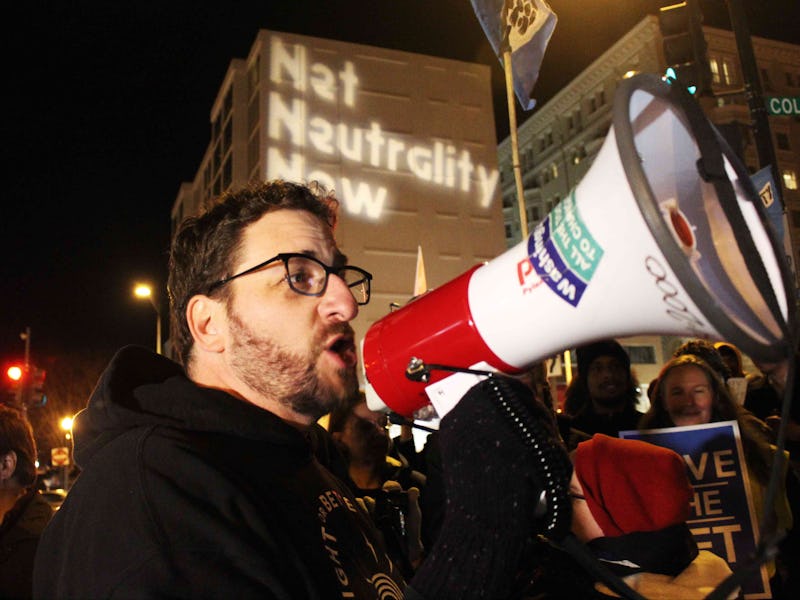Everything to Know About Net Neutrality Before It Expires June 11
There's still time to take action.

Ah, the trigger word for the entire internet: net neutrality. Few people have collectively managed to piss off internet users like Ajit Pai, chairman of the Federal Communications Commission. Despite earnest pleas to elected representatives, the FCC, Comcast, and Verizon have won this round.
But the whole ordeal was and continues to be really confusing and unnecessarily politically-charged, so let’s break it down.
What Is Net Neutrality?
For starters, we the internet are not against net neutrality, a common misconception. We like net neutrality. Net neutrality is a good thing. But it’s also not a physical thing. It’s more of a principle that holds internet service providers shouldn’t completely block websites or allow some content to load slower than other content on purpose.
What that means is that providers — Comcast, Verizon, or whoever you pay to provide internet on your devices — shouldn’t be able to slow down Netflix and Hulu to encourage you to keep your cable package. They shouldn’t be able to pick and choose what content is more accessible. They also shouldn’t be able to charge you more to access more content. The internet is free and unregulated, mostly, for a reason: freedom of information, expression, and innovation.
The FCC enacted net neutrality provisions in 2015, after fighting legal battles with broadband providers. But now, under dominant Republican leadership, they have moved to reverse it.
Who Is Against Net Neutrality?
Republicans, mostly, though not all of them.
The reason it has become one is because of internet service providers. They really want your money, and content providers’ money. They’ll argue that there are some benefits to the “Restoring Internet Freedom” proposal (very funny), but bottom line, you don’t want people with monetary interests regulating what you can do online.
When Will the Repeal Go Into Effect?
It’s slated for this Monday. Unless — yes, there’s an unless — the House of Representatives pass a vote to reverse the repeal. The US Senate already did so on May 16, but the House and Trump’s signature are still needed. Yesterday, the entire Senate Democratic Caucus wrote a letter to Speaker Paul Ryan urging him to call a vote.
So far, radio silence. The House can force a vote if the majority of the representatives sign a discharge petition, but they’re running out of time. And Trump would still need to sign off on it.
Why Does This Effect Me?
Even if all the above hasn’t convinced you that net neutrality is vital to our freedom, let me just say this: Corporations like Comcast and Verizon could charge companies a price to put their content on a “fast lane,” leaving those without massive resources to fall by the wayside. And that means you’ll probably have to pay a bigger internet bill to access everything from Netflix to porn. Come on, now. The American people I know wouldn’t let our right to easily accessible porn be infringed upon.
How Do We Fight Back?
Groups like Battle For the Net have a lot of helpful information about this. Calling, emailing, and writing to your representatives, as well as informing others about the issue, is probably the best course of action. Unless the person reading this is Ajit Pai, in which case, get the hell out!